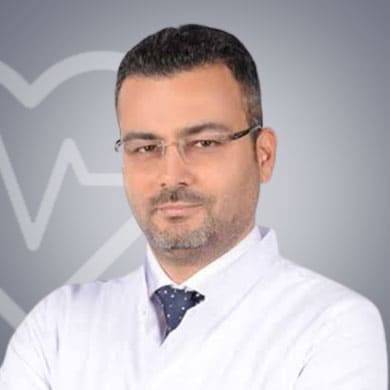
Gastrointestinal and Bariatric Surgeon
Verified
Istinye University Bahcesehir - LIV Hospital , Istanbul, Turkey
20 Years of experience
Speaks: English
USD 246 USD 205 for video consultation
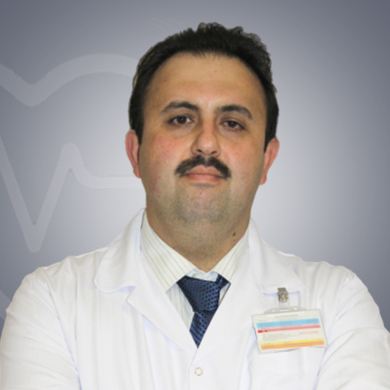
Dr. Mustafa Hasbahceci is a specialized General Laparoscopic Surgeon in Turkey. And one of the most sought after medical specialists in istanbul, Turkey. The doctor has over of experience and is associated with Medical Park Fatih Hospital.
Qualifications :
Hospital Address :
skenderpaa, Medical Park Fatih Hastanesi, Horhor Caddesi, Fatih/stanbul, Turkey
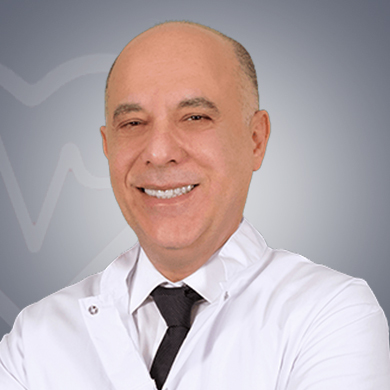
Dr. Melih Paksoy is a specialized General Laparoscopic Surgeon in Turkey. And one of the most sought after medical specialists in istanbul, Turkey. The doctor has over 28 Years of experience and is associated with Acibadem Fulya Hospital.
Association and Memberships Dr. Melih Paksoy is part of:
Qualifications :
Hospital Address :
Dikilita Mahallesi, Acbadem Fulya Hastanesi, Hakk Yeten Caddesi, Beikta/Istanbul, Turkey
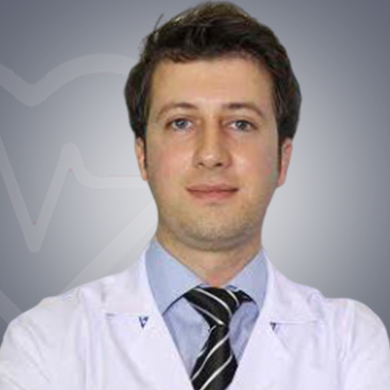
Dr. Abdulhalim Serden is a specialized General Laparoscopic Surgeon in Turkey. And one of the most sought after medical specialists in konya, Turkey. The doctor has over 8 Years of experience and is associated with Medicana Konya Hospital.
Qualifications :
Hospital Address :
Feritpa?a Mahallesi, Medicana Hospital in Konya, Grz Sokak, Seluklu/Konya, Turkey
What is the medical expertise of Dr Abdulhalim Serden?
Using MediGence’s Telemedicine Platform, you can book a personalized video consultation with renowned doctors around the world

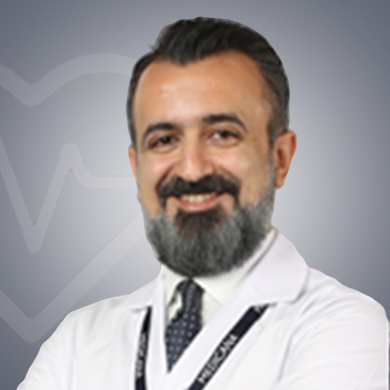
Dr. Ersoy Taspinar is a specialized Bariatric Surgeon in Turkey. And one of the most sought after medical specialists in Ankara, Turkey. The doctor has over 18 Years of experience and is associated with Medicana Bursa Hospital.
Qualifications :
Hospital Address :
Odunluk Mahallesi, Medicana BURSA HOSPITAL, Akp?nar Caddesi, Nilfer/Bursa, Turkey
What is the medical expertise of Dr Ersoy Taspinar?
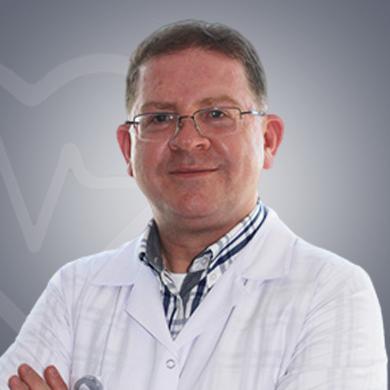
Dr. Cenap Dener is a specialized Bariatric Surgeon in Turkey. And one of the most sought after medical specialists in Ankara, Turkey. The doctor has over 35 Years of experience and is associated with Memorial Ankara Hospital.
Association and Memberships Dr. Cenap Dener is part of:
Qualifications :
Hospital Address :
Balgat Mah., Memorial Hospital Ankara, Mevlana Blv. & 1422. Sok., ankaya/Ankara, Turkey
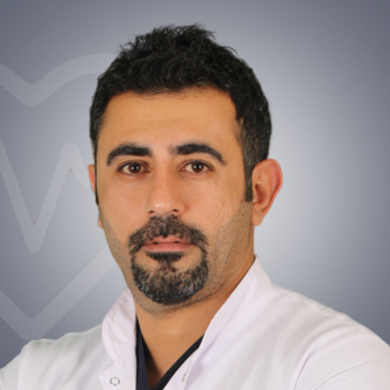
Dr. Fa Dogan is a specialized Bariatric Surgeon in Turkey. And one of the most sought after medical specialists in Elazig, Turkey. The doctor has over 3 Years of experience and is associated with Medical Park Elazig Hospital.
Association and Memberships Dr. Fa Dogan is part of:
Qualifications :
Hospital Address :
Olgunlar, Elazig Medical Park Hospital, Atat
What is the medical expertise of Dr Fa Dogan?
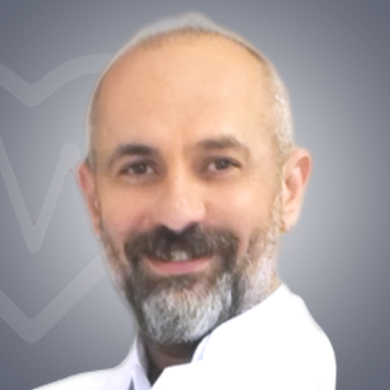
Dr. Ugur Acalin is a specialized Bariatric Surgeon in Turkey. And one of the most sought after medical specialists in Istanbul, Turkey. The doctor has over 15 Years of experience and is associated with Lokman Hekim Esnaf Hospital.
Qualifications :
Hospital Address :
Tuzla, Private Lokman Hekim Esnaf Hospital, 54. Sokak, Fethiye/Mula, Turkey
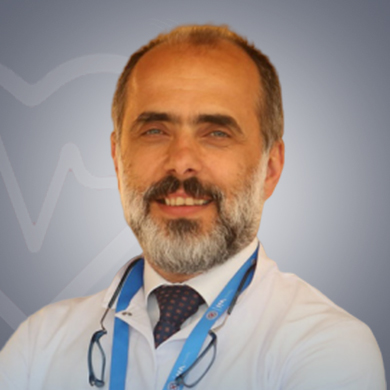
Dr. Halil Alis is a specialized General Laparoscopic Surgeon in Turkey. And one of the most sought after medical specialists in Istanbul, Turkey. The doctor has over 18 Years of experience and is associated with I.A.U VM Medical Park Florya Hospital.
Association and Memberships Dr. Halil Alis is part of:
Qualifications :
Hospital Address :
Beyol, .A.
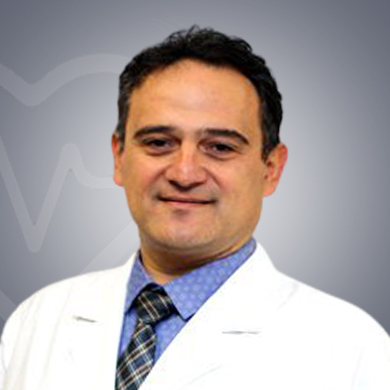
Dr. Ahmet Serdar Karaca is a specialized General Laparoscopic Surgeon in Turkey. And one of the most sought after medical specialists in Istanbul, Turkey. The doctor has over 23 Years of experience and is associated with Baskent University Istanbul Hospital.
Association and Memberships Dr. Ahmet Serdar Karaca is part of:
Qualifications :
Hospital Address :
Altunizade, BAKENT
What is the medical expertise of Dr Ahmet Serdar Karaca?
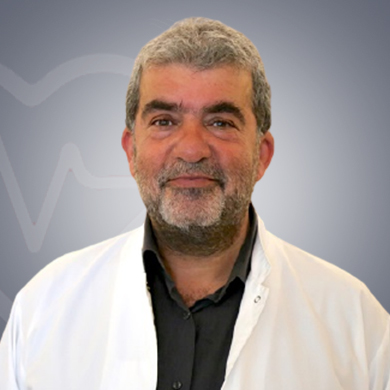
General & Laparoscopic Surgeon
Istanbul, Turkey
34 Years of experience
Speaks: English
Dr. Ertugrul Gazioglu is a specialized Surgical Oncologist in Turkey. And one of the most sought after medical specialists in Istanbul, Turkey. The doctor has over 34 Years of experience and was associated with Liv Hospital Ulus.
Association and Memberships Dr. Ertugrul Gazioglu is part of:
Qualifications :
Medical Expertise of Dr. Ertugrul Gazioglu
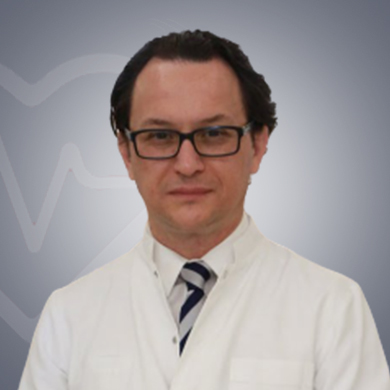
Laparoscopic & Bariatric Surgeon
Memorial Sisli Hospital , Istanbul, Turkey
20 Years of experience
Speaks: English
Dr. Halil Coskun is a specialized Bariatric Surgeon in Turkey. And one of the most sought-after medical specialists in Istanbul, Turkey. The doctor has over 20 Years of experience and was associated with Liv Hospital Ulus.
Association and Memberships Dr. Halil Coskun is part of:
Qualifications :
Medical Expertise of Dr. Halil Coskun
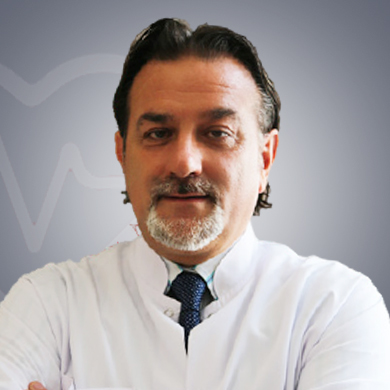
Dr. Cenan Oktay is a specialized General Laparoscopic Surgeon in Turkey. And one of the most sought after medical specialists in Istanbul, Turkey. The doctor has over 30 Years of experience and is associated with Asya Hospital.
Association and Memberships Dr. Cenan Oktay is part of:
Certifications :
Qualifications :
Hospital Address :
Yeni, ASYA HASTANES, Cami Kars Sk., Gaziosmanpaa/stanbul, Turkey
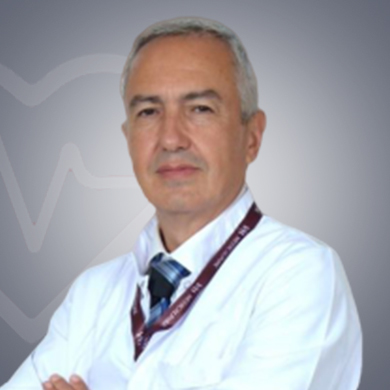
Dr. Emin Engin Ovalioglu is a specialized General Laparoscopic Surgeon in Turkey. And one of the most sought after medical specialists in Bursa, Turkey. The doctor has over of experience and is associated with VM Medical Park Bursa Hospital.
Association and Memberships Dr. Emin Engin Ovalioglu is part of:
Qualifications :
Hospital Address :
Krcaali, Medical Park Hastanesi, Fevzi
What is the medical expertise of Dr Emin Engin Ovalioglu?
" Traditional Surgical Case Research Study" in 1998.
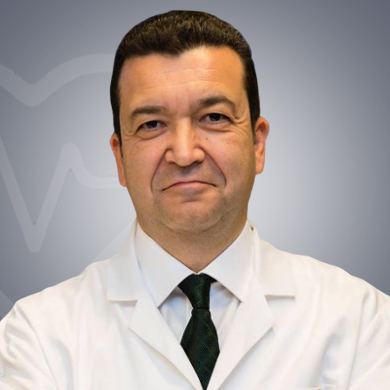
Dr. Orhan Celen is a specialized Surgical Oncologist in Turkey. And one of the most sought after medical specialists in Kocaeli, Turkey. The doctor has over of experience and is associated with Medical Park Gebze Hospital.
Association and Memberships Dr. Orhan Celen is part of:
Qualifications :
Hospital Address :
G
What is the medical expertise of Dr Orhan Celen?
A general surgeon is a doctor specialized in the diagnosis and treatment of the patient including pre-operative, operative, and post-operative management of patient care. Surgery requires knowledge, training and experience of human anatomy, emergency and intensive care, immunology, metabolism, nutrition, pathology, physiology, shock and resuscitation and wound healing. Some of the general surgeons perform laparoscopic surgery (a surgical technique in which short tubes are inserted into the abdomen), and they are known as laparoscopic surgeons (explained below).
General surgeon is trained to provide surgical care to the patient which includes examining the patient and his medical reports, diagnosing the disorder or condition requiring surgery, pre-operative, operative and post-operative management of the patient care, and the surgical treatment of the:
| Doctor | Associated Hospital |
|---|---|
| Dr. Halil Coskun | Liv Hospital Ulus, Istanbul |
| Dr. Zafer Ferahkose | Bayindir Healthcare Group, Ankara |
| Dr. Erkan Aksoy | Medical Park Ordu Hospital, Ordu |
| Dr. Orhan Celen | Medical Park Gebze Hospital, Kocaeli |
| Dr. Ahmet Serdar Karaca | Baskent University Istanbul Hospital, Istanbul |
| Dr. Seda Demetgul | Medical Park Ordu Hospital, Ordu |
| Dr. Kemal Dolay | Liv Hospital Ulus, Istanbul |
| Dr. Nihat Polat | Medical Park Ordu Hospital, Ordu |
Please make sure to see your doctor using Telemedicine before you even board a flight
A general laparoscopic surgeon is a doctor specialized in performing laparoscopic surgeries. Laparoscopic surgery, also known as keyhole surgery, is a surgical procedure performed through a small incision, made for the surgery, and passing a small tube with a video camera to the body cavity to look inside the body and pinpoint the area of operation.
General surgeons are trained to operate on the:
In addition to that, general surgeons are trained and experienced in providing patient care before, during, and after surgery, including:
When should you consider visiting a Laparoscopic Surgeon?
There are various reason that your physician might ask you to visit a laparoscopic surgery, some of them includes:
What are some of the problems diagnosed and treated with Laparoscopy?
Laparoscopy is used to diagnose and treat many problems including:
Procedures Performed by General Laparoscopic Surgeon in Turkey
Popular General Surgeon in Top Countries are :
Top Speciality Doctors in Turkey:
List of Top Rated Hospitals where we can find General Surgeon in Turkey are as followed:
Yes, we provide the list of General Surgeon in Turkey in the following languages:
Listed below are some of the top general surgeon available for online consultation in Turkey:
Given below are some of the most sought after general surgeon in other countries:
Listed below are some of the top hospitals in Turkey where general surgeon work:
General surgeons are doctors who specialize in surgical procedures to treat conditions related to various body parts. A general surgeon is part of a surgical team that includes nurses, an anesthesiologist, and surgical technicians. A general surgeon has specialized knowledge of different surgical processes, from the initial evaluation through preparation and post-operative management.
A general surgeon understands all the below-given basic areas of surgery:
Today, most general surgeons are familiar with minimally invasive procedures like laparoscopy. Laparoscopic surgeries make use of much smaller tools, including small cameras that allow the surgeon to see what is going on inside the body. These specialized instruments will help the surgeon make much smaller cuts than they could with conventional procedures.
General surgeons have a broad knowledge of different diseases and conditions. They will tell you whether you require surgery and what kind of surgery would be best for you. As general surgeon treats a variety of conditions, they need to meet unique needs.
Anyone interested in becoming a general surgeon needs to go through a long period of medical education for acquiring board certification and licensure. After completing 10+2 with PCB, a candidate can continue your further studies towards becoming a general surgeon.
These doctors have special training in the field of general surgery. They have to earn an MBBS degree before focusing on their specialty area.
After obtaining an MBBS degree, the next step is to pursue the PG course, MS, which is one of the most popular PG courses after MBBS. This degree makes you eligible for practicing as a general surgeon. A surgeon's residency program includes at least 48 weeks of full-time work with patients.
Some of the specialization areas for a prospective general surgeon are:
General surgeons provide medical as well as surgical care. They focus on injuries and conditions affecting the breasts, abdomen, digestive system, skin, and endocrine system. They also evaluate imaging tests, lab tests, and biopsies as part of delivering care. Surgeons treat people of all ages, with a wide range of conditions.
Here are some common conditions they treat:
Many general surgeons recommend routine laboratory tests before admission to the hospital, or before some outpatient procedures, to identify exact problems that may complicate surgery if not detected and treated early. A general surgeon may tell you to get the below tests done to identify your condition and design a treatment plan accordingly.
Your doctor/general physician may refer you to a general surgeon depending on the diagnostic reports and the complexity of your condition. General physicians and other doctors work very closely with general surgeons in case the treatment plan requires an invasive approach. It may be because the medications are not working and there’s a disease that needs to be removed surgically by a general surgeon.
Below are some symptoms which suggest that you need to consult a general surgeon to discuss your problem and get treatment options.
When you visit with a general surgeon, they will thoroughly evaluate your health in order to make sure that surgery is the right option for you. The surgeon will also explain the procedure and answer your queries about the procedure.
Your first visit with a surgeon typically is a consultation designed to assess your medical history and tests, review how the problem may be affecting you, and completely examine you to collect the necessary information that will help in deciding the next steps together. Sometimes, we might need more information like additional tests and discussions with your PCP to ensure that all of the medical issues have been addressed.
Your general surgeon will tell you how to get ready for the operation, including:
The surgeon will tell you what to expect during your recovery. If your surgery needs a hospital stay, they will tell you how long you could expect to stay in the hospital and what you will require once you are discharged.
Some common procedures performed by a general surgeon include:
Take online renowned doctors’ consultation with Telemedicine by MediGence, regardless of wherever you are.
How to access Telemedicine?
Exploring & Booking an appointment with the specialist in 3 simple steps-
Telemedicine enables you to-
Our Telemedicine offering makes things simple via its user-friendly interface.
Exploring & Booking an appointment with the specialist in 3 simple steps:
Experience online doctor consultations; Simple & Secured with MediGence…